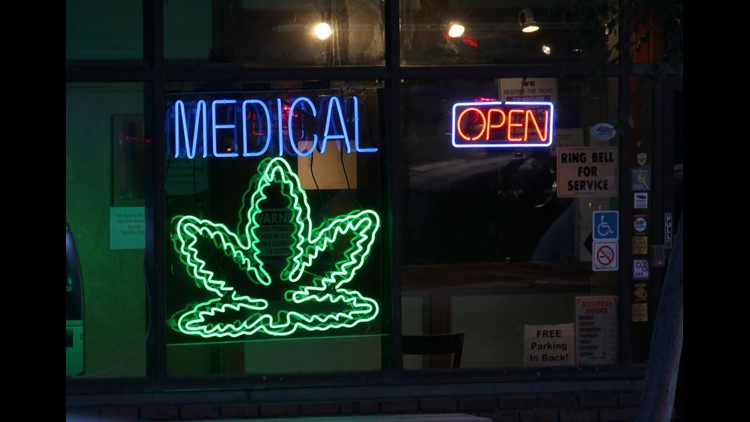SPRINGFIELD,ILL, (ILLINOIS NEWS NETWORK)- Illinoisans who have a prescription for opioid pain medication can soon ask their doctor to substitute the addictive pills for medical marijuana in what could be a major expansion of the state's pilot medical marijuana program.
Gov. Bruce Rauner signed the bipartisan bill into law Tuesday, calling it a way to fight the growing opioid epidemic. It would allow residents 21 and older who have been ordered by a doctor to take any kind of opioid-based pain killer to substitute it with temporary access to the state’s medical cannabis program, potentially adding millions of new temporary passes into the pilot program that runs through July 2020.
“This law will help people avoid opioid addiction and that will save lives,” Rauner said at a news conference Tuesday. “Dealing with the opioid crisis in Illinois is a top priority for this administration, and it is one that requires innovative solutions.”
Opioid deaths in Illinois jumped 13 percent from 2016 to 2017, according to Illinois Department of Public Health reports. The Journal of the American Medical Association has reported that states with medical marijuana dispensaries have seen a 14.4 percent decrease in the use of prescription opioids, according to a news release from the governor.
“Opioids can be highly addictive in a very short period of time,” IDPH Director Dr. Nirav Shah said in a statement. “Because the number of opioid deaths continues to rise in Illinois, although at a much slower pace, we understand a person’s hesitancy in filling an opioid prescription. The Opioid Alternative Pilot Program will offer people another option in managing pain.”
The legislation also streamlines the process for acceptance into the medical marijuana program. It no longer requires patients to be fingerprinted and undergo criminal background checks.
“The opioid crisis is getting worse at an alarming rate,” said Sen. Don Harmon, D-Oak Park. “This law gives people a chance to act quickly and pursue a safe, alternative treatment if they choose.”
According to the Illinois Department of Public Health, there were more than 5.3 million prescriptions for opioid-based painkillers filled last year. It paves the way for the single-largest expansion of the existing Illinois Medical Cannabis Pilot Program, which has about 42,000 authorized patients. Those patients have brought the state about $200 million in sales tax revenue since the program’s inception in late 2015.
Critics of the expansion of medical cannabis have said the potency of available marijuana and the quantity, 2.5 ounces every two weeks, is more than needed to mitigate pain.
Marijuana possession remains illegal under federal law.



